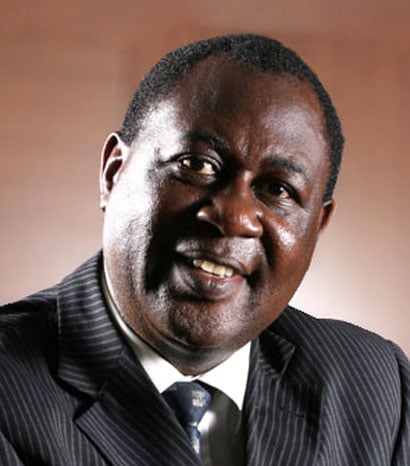The US government should not interfere with the independence of our judiciary
 Sam Mayanja
Sam Mayanja
Sam Mayanja
Keep Reading
The Uganda Judiciary is among the world’s most distinguished. Its ranks have produced judges to world tribunals like International Criminal Court, International Court of Justice, East African Court of Justice, to mention just but a few.
In addition, it has helped nurture Judicial Systems in several countries where Ugandan judges have served as Judges of Courts of judicature in foreign Jurisdictions.
The recently retired Chief Justice Bart Katureebe was in 2018 voted the highest rated professional by the East African Law Society.
The Uganda Judiciary has prospered in an atmosphere where it exercises judicial power, free from control or direction of any person or authority.
This includes processes which lead to issuance of adoption orders. In instances where a party is aggrieved, court orders so issued can be appealed to higher courts.
In those cases where a judicial officer in the exercise of his or her judicial responsibility strays from the ethical judicial path, disciplinary processes are engaged through the Judicial Service Commission.
The right to be heard is a non-delegable right and judicial officer’s exercise their right to be heard when the Judicial Service Commission is hearing a legitimate complaint against a judicial officer.
The Judicial Service Commission exercises its functions independently and is not subject to the direction or control of any person or authority.
The 17th August 2020 indictment to the Uganda Judiciary, imposing financial and visa restrictions on two Uganda judicial officers at the rank of High Court judges, for alleged involvement in activities that victimised children in an alleged corruption adoption scheme, shocked many who know a thing or two about the highest ethical standards of the Uganda judiciary.
The granting of adoption orders follows a judicious process whose cardinal principle concern is the child’s welfare and interprets the laws governing adoption of children in Uganda liberally so as to enhance the benefit and protection of infants to be adopted thereby giving effect to the intentions of the legislature.
The Uganda Judiciary engages the due process of law in exercise of its unlimited original jurisdiction and inherent powers to grant legal guardianship orders.
Applications are brought to court by persons who intend to take away infants who are of tender age and in need of care and protection.
The applicants’ maybe Ugandans or foreigners not residing in Uganda. The judiciary considers the circumstances and ascertains what is in the best interest of the child, to be placed, in an alternative permanent nurturing family, which is ready to provide the child with love, happiness and the basic needs for a healthy development.
The courts can override the interests of the biological parents in preference to the paramount need of the child to have a nurturing family.
The same need also outweighs a country’s desire to retain her children. To the judiciary what can cause most harm to children is denying them a permanent nurturing home early in life.
The judiciary has no jurisdiction after the adopted child and parent leave the country. Upon arrival in the USA the legal guardians follow through a subsequent adoption process, where the Uganda judicial orders are evidence that the guardianship was given by a competent court.
The adoption is declared to be permanent in the USA, and the authorities issue a new birth certificate dropping the child’s Ugandan name and on that certificate the parents of the child are shown to be the adoptive parents.
The child becomes a US citizen and a certificate of citizenship is issued.
A social security card is given and a new relationship governed by US laws commences, between the child and the Adoptive parents.
At this point the matter is no longer within the ambit the Uganda judiciary and is now an inter-country matter to be handled within the international law processes that provide for inter-country adoption through ratification by states of International Conventions on the Rights of the child.
It is the international community to take all appropriate measures to ensure that an inter-country adoption global machinery is put in place to monitor the well-being of the adopted child and take appropriate measures to prevent the abduction, sale or trafficking of children for any purpose or in any form, by any person including parents or Legal guardians of the child.
It is within this international jig-saw-puzzle that the Uganda judiciary working within the ambits of the municipal law, would have put up a spirited rebuff to the US government indictment.
However the judiciary’s mouth is gorged by its judicial ethical values-it cannot issue a public rebuttal. It can only look on as it is condemned unheard, taking consolation in the biblical proclamation-“mountains speak for those whose mouths are shut”.
Indeed the mountains are speaking out loudly, boldly and clearly in the defence of the Uganda judiciary.
The author is a senior partner at Kampala Associated Advocates.













